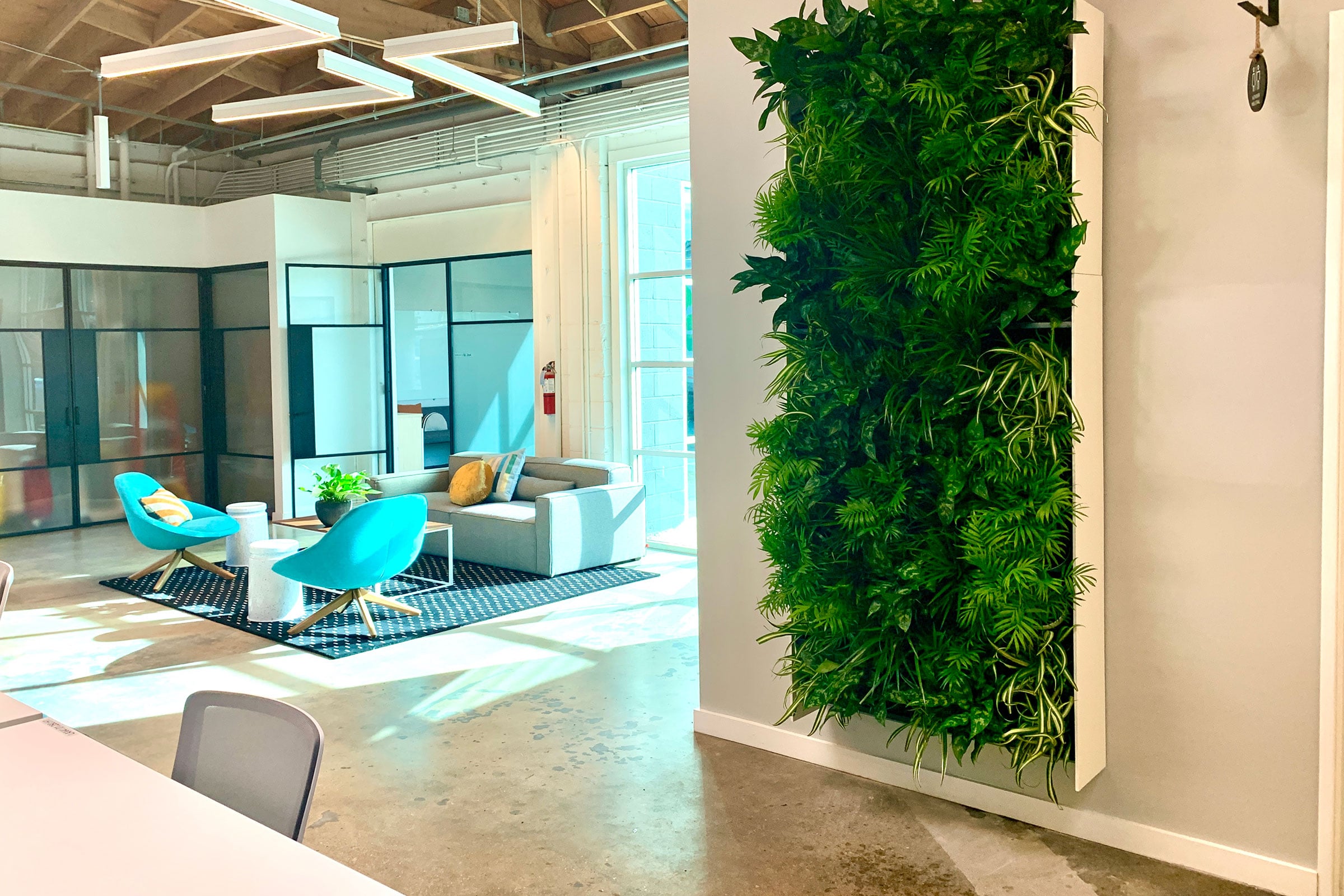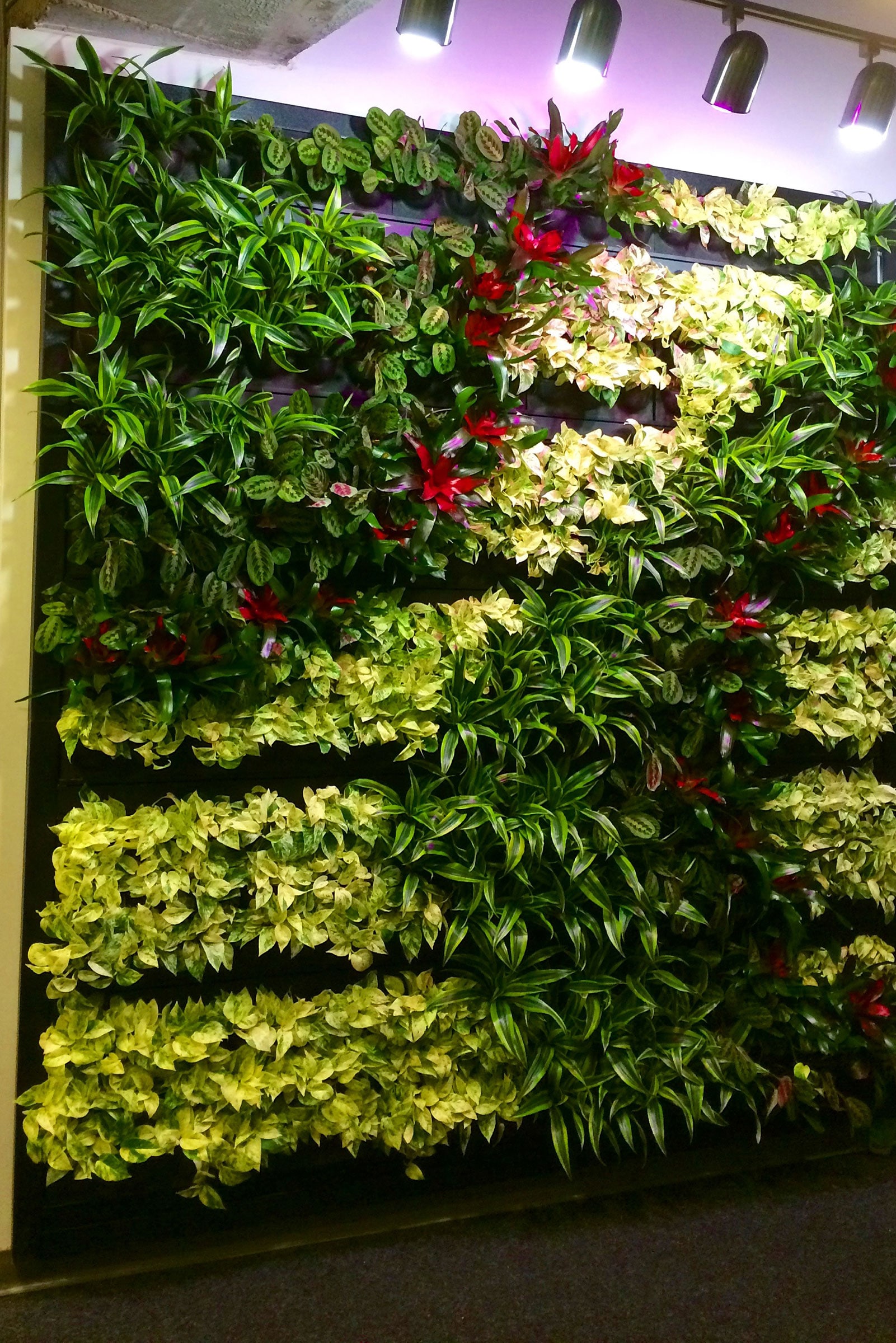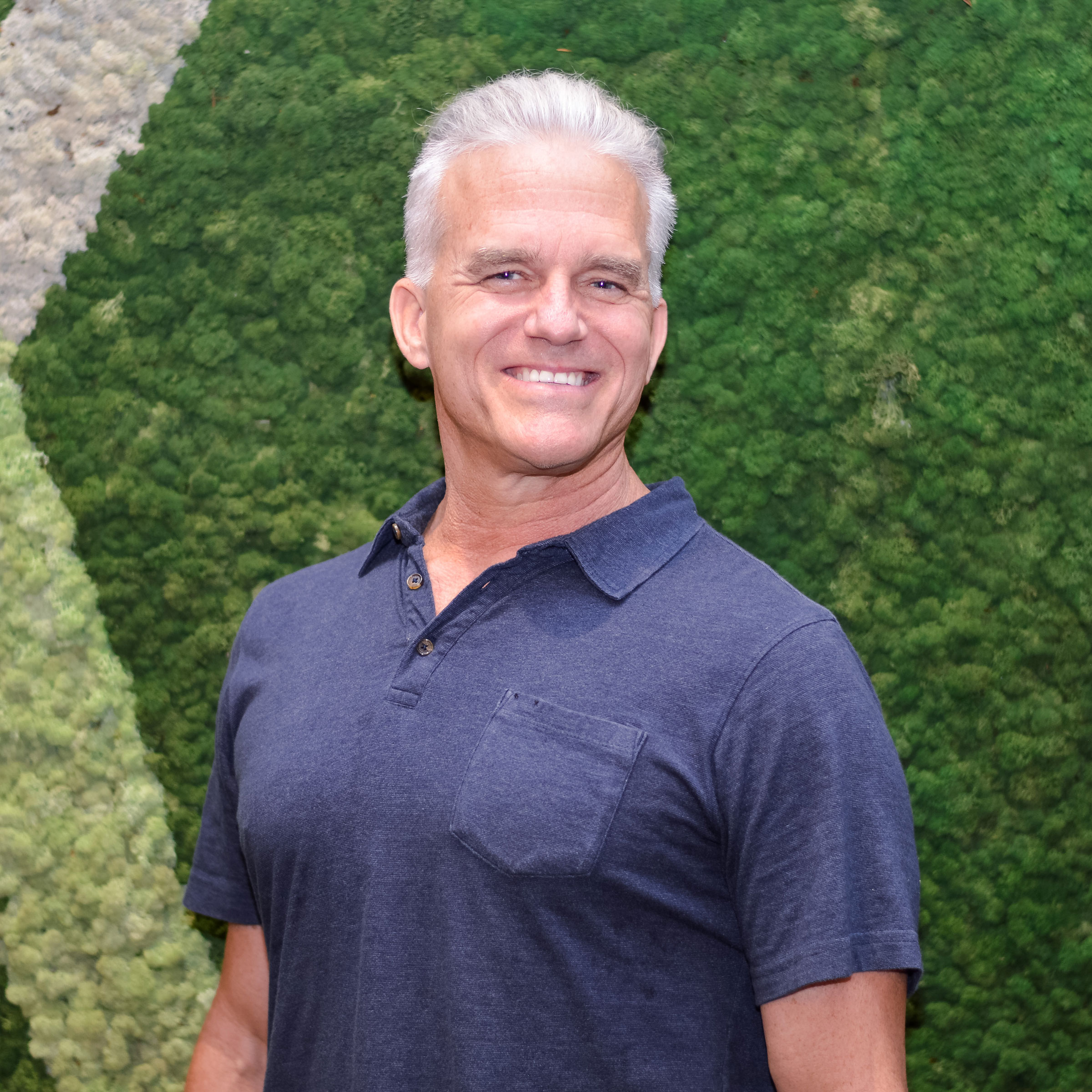
The Ambius team transformed one unused space in a Zappos building (left) to attract employees from other more crowded areas in the office. “I incorporated green walls, increased lighting, added plants, and it worked. People migrated over,” Karl says. Photo courtesy of Ambius
As we learn to live in what we call “the new normal,” one silver lining is that we are more in touch with our needs. Our health can no longer be ignored, and incorporating biophilic design that’s proven to improve well-being and productivity into workspaces is critical.
This is the first pandemic we’ve experienced globally. Our environment is changing, and if health is our top priority, biophilic design is paramount—it’s as necessary as the computers we work on and the chairs we sit in. Biophilia is essentially our love of nature. It’s a genetically hardwired relationship; we need it. As our time in built environments increases, our need for nature increases. I and the team at Ambius expect a lot of spaces will revisit their needs, asking, “How do we reconfigure what we’ve done?” or “How do we introduce biophilia for the first time?”
When businesses reopen, space will be a new reality. Green walls will be more in demand, and we’ll rethink the open office—especially the idea of incorporating plexiglass. If we’re creating barriers, bordering with plants is important. We want to reduce the tension of plexiglass. How we enter spaces, the direction we navigate, and six-foot social distancing will create some new challenges.

Photo courtesy of Ambius
The living plant will be the TV monitor of the ’00s. Airports and amusement parks found using video on monitors lessened the perceived wait time in lines. Similarly, biophilic design will help with spacing by replacing the retractable barriers you may know and hate from waiting in lines with something beautiful.
The harsh realities of global pandemics and climate change are driving us into built environments, at the same time forcing the need for biophilic design. This is our time to realign with the environment and design a way that supports our innate love of nature.

Chris Karl, Design Specialist, Ambius
Chris Karl has been working with Ambius for more than 25 years and has been in virtually every role. While he’s seen biophilic design evolve, he expects it to play an even more crucial part in the design of commercial and office spaces given the need for social distancing. As part of Ambius’ elite design team, Karl is currently researching the future of biophilic design and developing new and exciting ideas—from using plant containers as barriers to rethinking wayfinding to how to incorporate plantlife into plexiglass.
